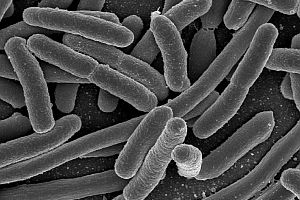They say you are what you eat, but can your diet really have an impact on the microbes that live in your digestive tract? While thinking about the millions of microscopic life forms (collectively called the human microbiota) living in your gut might make you feel a bit squeamish, this topic has fueled a considerable body of research. The results strongly suggest that a person’s food choices do have a significant impact on their microbiota. And that this microbiota in turn has a real impact on their overall health and wellness.
Diet and Microbiota Content
One of the more recent studies that show the relationship between diet and microbiota was conducted in 2014 by researchers at Duke and Yale. In this study, researchers compared the microbiota of a group of volunteers. For five days, the volunteers limited their diet to rice and vegetables. After eating their regular diet for a week, the volunteers then spent another five days eating only animal and fatty products. The results showed that only three days after each dietary change there was a significant variation in the type of microbiota present.
A Gut-Friendly Diet
Even though the microbes in your gut are tiny, they can have a big influence on your health, particularly when it comes to digestion. Diets that are high in sugar, animal fats, and processed foods provide nourishment for the unhealthy microbes that cause digestive issues. Unfortunately, these foods are also a large part of the standard American diet. It comes as no surprise, then, that doctors see millions of patients every year for issues such as heartburn, bloating, constipation, irritable bowels, and diarrhea. Changing your diet to include foods that encourage a healthy balance of microbes can help keep you at your best.
Keep the following in mind when building a gut-friendly diet:
- Limit foods that are processed and high in sugar. Cutting off this food source helps to keep unhelpful bacteria in check.
- Increase your intake of beans, seeds, nuts, vegetables, and fruits. These foods help to increase the amount of “good” bacteria.
- Consider probiotic foods. Foods that are considered probiotic (such as kefir or Greek yogurt) contain live bacteria. These microorganisms help to supplement the good bacteria already in your digestive system and can help to tip the balance in your favor. Probiotics can be particularly helpful after a round of antibiotics, which can negatively impact your microbiota balance.
Your chiropractor can be a helpful resource when working to build a diet that is friendly to your digestive system. Because chiropractic care puts a special focus on lifestyle choices, your chiropractor can provide you with targeted feedback on how your food choices are impacting your overall health. Your chiropractor will work with you to build a food plan that improves your well-being in all areas, including your microbe balance.
Making food choices that positively impact the life inside of you can significantly improve your well-being. Keep your microbiota in mind when choosing your next meal: your digestive system will thank you!

